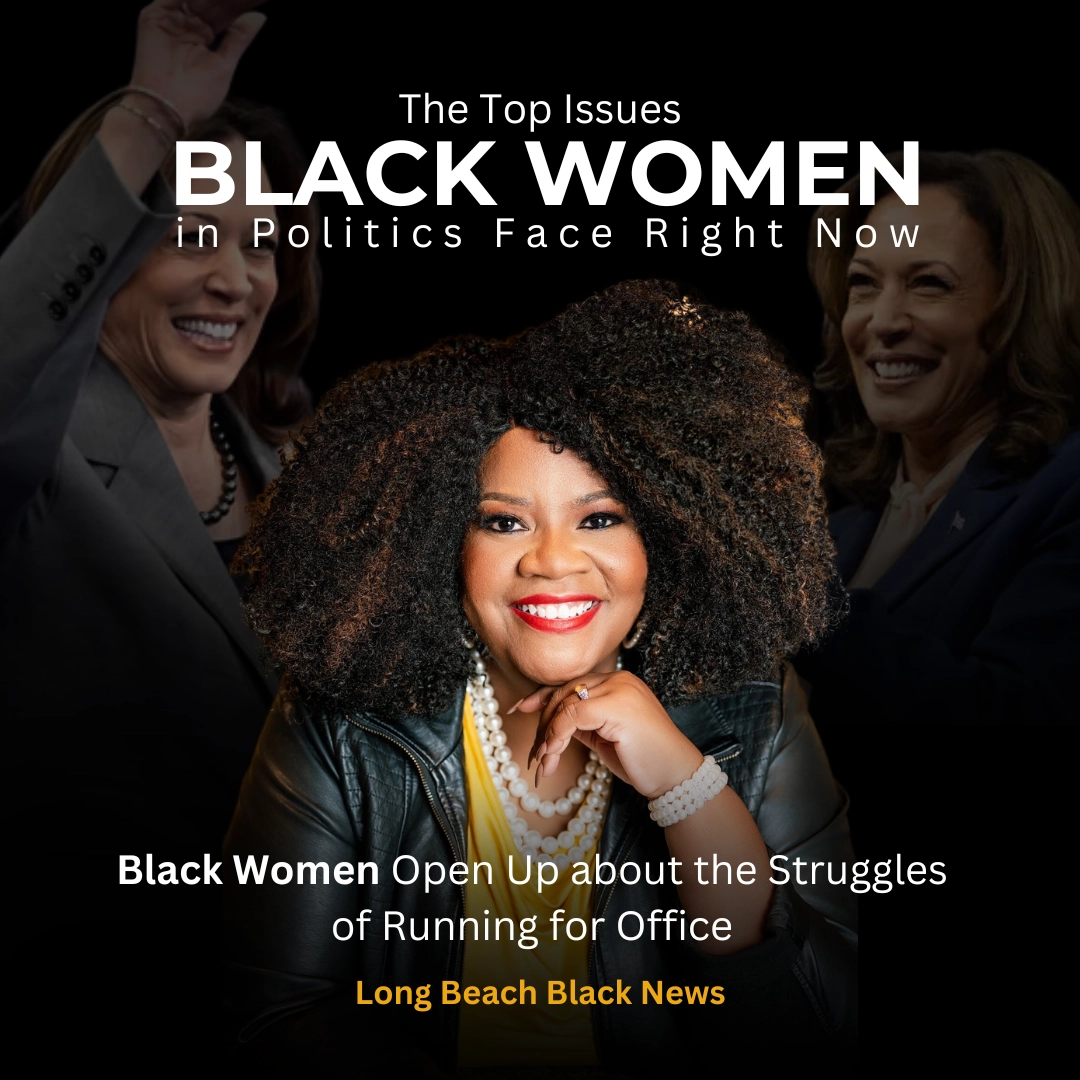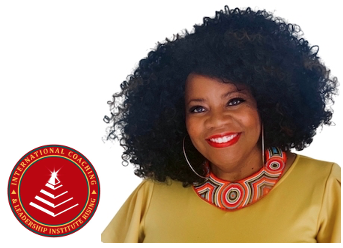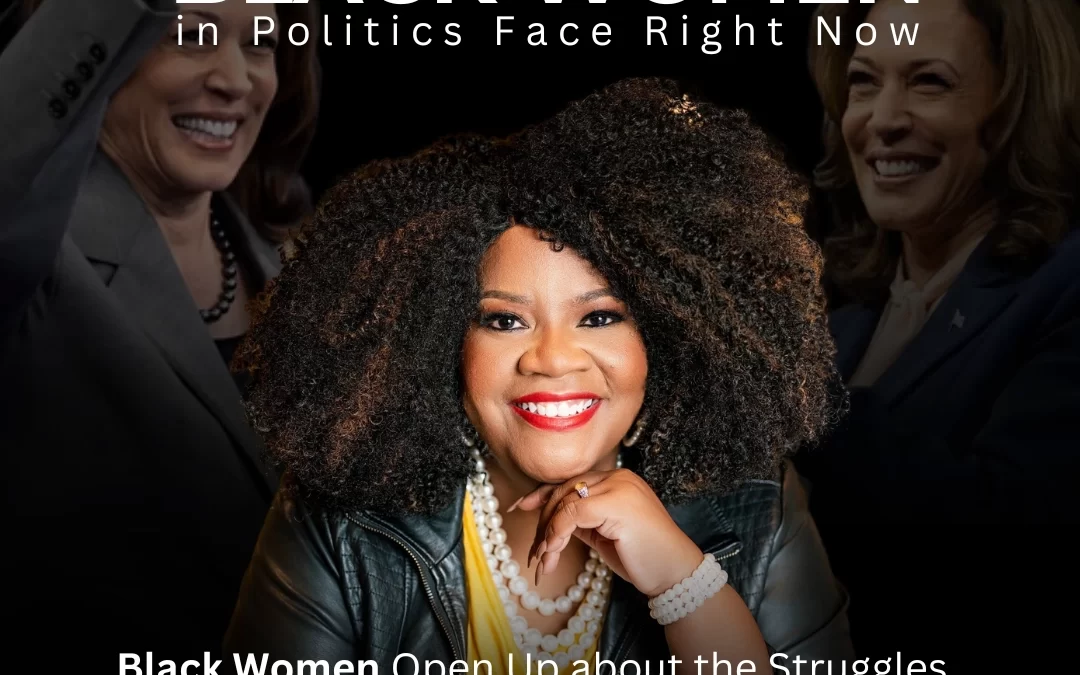
Right now, a Black woman is running for the highest office in the nation and it’s sparking discussions on the issues Black candidates face, how officials are treated once in-office and what work needs to be done to support them.

While Vice President and current Democratic Presidential nominee Kamala Harris has been incredibly vocal on the struggles she faced, her campaign has also presented an opportunity to hear from other women running for office as well.
“As Black women, being part of a government body is to exist in an environment that wasn’t created for us,” said Victoria Pelletier, a city councilor for the city of Portland, ME in an op-ed for Ms. Magazine.
Pelletier said before she even took office, she struggled with access and a “stack of prerequisites” that was almost impossible to meet given the ongoing disenfranchisement of Black Americans. Black women are underrepresented at every level of government as a result, according to RepresentWomen. This is because of a lack of funding/investment, little support from their party, and ongoing coverage in media that often shapes them as the “underdog” or less “qualified.”
Lack of support
This lack of support at the official level isn’t always countered by grassroots efforts either. Sivestment and disenfranchisement has left many Black voters completely uninterested in, or unable to, vote:
“One of the biggest challenges I encountered during my campaign is translating support into action,” said Sharifah Hardie, Long Beach Black resident and 2026 Republican California gubernatorial candidate.

“One of the biggest challenges I encountered during my campaign is translating support into action,” said Sharifah Hardie, Long Beach Black resident and 2026 Republican California gubernatorial candidate.
“While many people express their admiration and backing, motivating them to take tangible steps—like sharing their support publicly, volunteering, or making donations—proves to be quite difficult. It’s about turning enthusiasm into meaningful engagement, and that’s where I see the most room for growth.”
Long Beach’s first Black city council person, Doris Topsy Elvord, was renowned for her incredible community work. She died at age 90 after a long line of civic engagement and political involvement. For many older Black women who enter politics, it’s shocking to not see the numbers radically increase as they age.

Sophia Casey, Master-Certified Coach
Sophia Casey, Master-Certified Coach, has worked with Black leaders across industries and served as the Director of First Impressions for the White House. She said, “For a lot of Black women candidates they have to go so far and above what’s required of other candidates. Others can show they have the background, but often Black women are constantly thinking about what ‘this is what a politician looks like, acts like’ so it can be difficult to show up authentically. They have to prove the credentials and then also prove they can fit a ‘certain image.’ On top of the already high pressures of campaigning, this can
be a lot for Black women to handle and it can push some out altogether.”
A sentiment Pellietier echoes:
“I’ll never forget what another Black woman serving in elected office told me in the aftermath of a traumatic, racist experience I encountered almost one year ago. During a crying phone call, she said to me that when you’re a Black woman, you can never “just serve” in public office. There’s no such thing as simply campaigning, showing up, doing your job and going home. Why? Because every single barrier, racist or sexist experience you encounter stays with you. As the second Black woman elected in my city’s history, it’s a phrase I’ll never forget.”
Cities and municipalities across the nation are still seeing their “first” Black woman elected in many offices.

In the year 2024.
As we cheer for Harris, it’s time we also think about supporting the many other Black women running for office.
“Black women in leadership positions are often highly celebrated, they’re lauded…once they get there,” said Casey. “However, the way there can be lonely, difficult and cause you to question your skills, abilities and, honestly, yourself. So much of my work is saying ‘OK this is your dream. Let’s get you there.’ And doing so in a way that truly celebrates you, your zone of genius and how you can make change.”
“My advice to anyone considering a run for political office is to cultivate thick skin,” said Hardie. “It’s essential to listen to feedback, but ultimately, the decisions are yours to make.
You should also have a clear understanding of your motivations: Why are you running? What drives your interest in politics? What qualities make you a strong candidate? And why should voters choose you? Clarity on these questions will not only guide your campaign but also resonate with your audience.”
The truth is that even if Harris assumes office in January, we still have so much work to do uplifting Black women candidates and elected leaders. This work can’t stop on Election Day. We must go out of our way to share their efforts and platform, vocally support their work and challenge those who unfairly dismiss them. Our future depends on it.
Original article published here: https://www.longbeachblacknews.com/black-women-open-up-about-the-struggles-of-running-for-office/

